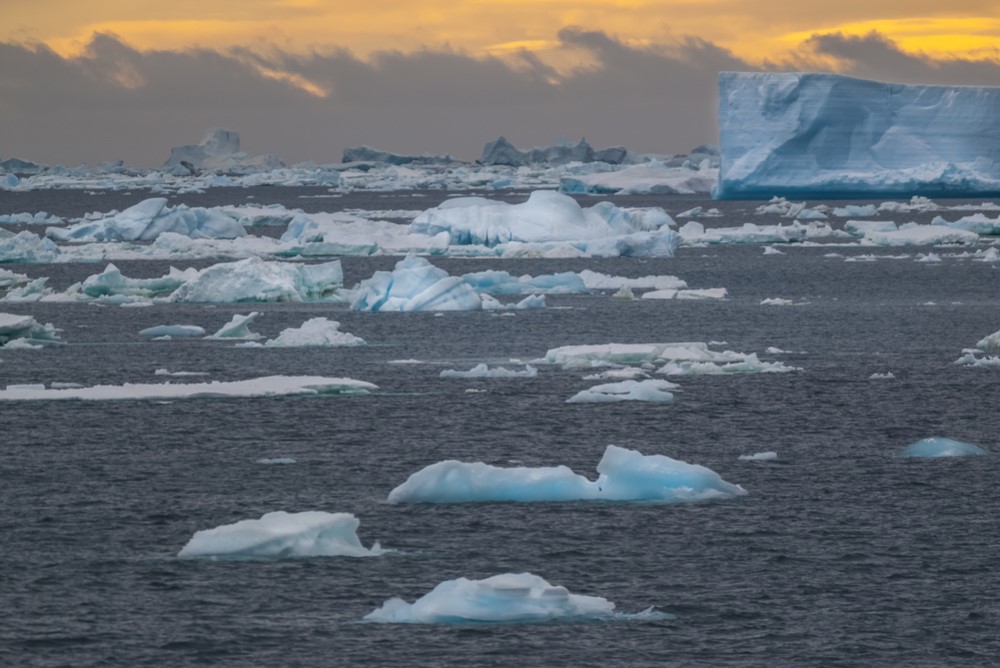Ethical Concepts in the Age of the Anthropocene

This article has a set of discussion questions tailored for classroom use. Click here to download them. To see a full list of articles with discussion questions and other resources, visit our “Educational Resources” page.
We all know, more or less, that Planet Earth is in trouble, that there is an overwhelming scientific consensus that an environmental catastrophe — systemic, complex, and more and more irreversible — is already underway.
We are facing an unprecedented concatenation of changes to the Earth. Global warming from fossil fuel pollution is causing ice caps to melt and oceans to rise, threatening to inundate many coastal habitats within decades. Climate change is causing more frequent and more extreme weather events in the form of violent storms and severe droughts. Destruction of ecological systems is leading to the collapse of insect and bird populations which are necessary for the pollination of plants including human food crops. Oceans are filling up with plastic waste, and toxic synthetic substances can now be found in every part of the world. A “biological annihilation” of wildlife in recent decades shows that the sixth mass extinction in Earth’s history is underway and it is more severe than previously feared, according to new research.
Together with the expanding human population, this paints an unsettling picture of our current predicament. According to biologist Professor Paul Ehrlich the optimal maximum human population is less than two billion, yet the global human population is predicted to reach nine billion by 2050.
It is now widely, though not universally, agreed that we have entered the Anthropocene — a new geological epoch characterized by the vast changes human civilization has wrought on the Earth and its systems. It is also (rightly) argued that humans are not equally responsible for the current ecological and environmental situation, notably by Jason Moore who coined the term ‘Capitolocene‘ to better represent the fact that it is largely (if not entirely) the capitalist/industrialized world whose populations have created the problem.
The central point about the Anthropocene is that we humans are impacting the world and its ecology on a scale previously unimaginable. All of this has massive implications for the environment and its capacity to support not just humans, but all life. It is thus urgent that we address the question of our ethical responsibilities to future generations, to other species, and to the planet. To whom do we owe moral consideration? What principles ground our environmental duties? How should we address questions of equity and fairness in the distribution of resources? What is the relation between personal obligation, government regulation, and corporate responsibility? To answer these questions we must first distinguish between intrinsic and instrumental value. That is, we must decide whether nature possesses value as an end in itself, or if it only has value insofar as we, humans, make use of and enjoy it.
Since the beginnings of the modern environmental movement in the 1970’s, we’ve had a growing awareness that human beings are fundamentally dependent on, and interconnected with, other living things and ecological processes. It is quite obvious that if we as a species want to continue to survive, if we wish future generations to have the opportunity to enjoy the wonders of the animal and natural world, we must change our behavior drastically. But is the focus on our own welfare and interests philosophically good enough or deep enough to support the kind of paradigm shift that we need to change our attitudes and behaviors regarding the natural world? Or are there other moral reasons that we should recognize apart from those which pertain directly to the precarious position of the human species?
It seems that people’s ethical intuitions tend to lean towards the environment possessing value as an end-in-itself. The following two examples may demonstrate this.
Consider the “Last Man” thought experiment proposed by Richard Routley in which it is claimed that on an instrumental view of moral value, the ‘last man left alive’ does nothing morally wrong if he decides to destroy the natural environment ahead of his own demise. That most people object to the last man’s actions suggests that we do seem to place a value on the environment — a value that is not reducible to the use we make of it.
A similar conclusion can be drawn from the reaction to a recent viral video showing an orangutan fleeing from bulldozers destroying its forest home in the Ketapang District in West Borneo, where palm-oil plantations threaten the orangutan population’s survival. It seems that the backlash against such a spectacle comes both from compassion for that animal and care that the species faces extinction. We recognize a moral value in the life of that particular orangutan as well as in the existence of a species, and we feel a sense of loss when a species nears extinction.
In Animal Liberation (1975), Peter Singer argued that we ought to do the greatest good for the most living beings in the world by instituting animal rights. Though Singer, and the school of utilitarianism that follows him, believes that there is no absolute moral distinction between species, he does place moral value on certain capacities such as sentience and intelligence. Those capacities’ value hold a special place in a kind of moral hierarchy, so that a sentient self-aware being has more ‘moral interest’ (i.e., a greater stake in our moral decision-making) than non-self-aware entities. So the stake that especially self-aware creatures have in not suffering harm, as well as in seeing their overall happiness maximized, yield requirements for moral action.
Utilitarian arguments generally embrace this kind of instrumentalism; they tend to focus on the value we place on, or the interest we take in, other things. For a utilitarian, a moral responsibility to care for nature derives from the normative goal of ‘the greatest happiness principle.’ On this view, Singer denies that things like biodiversity are goods in themselves. Instead, biodiversity is morally important insofar as it delivers goods that humans value and benefit from. Still, some goods are more important than others: we could not refuse to save a drowning child, for example, because we did not want to sacrifice an expensive pair of leather shoes. Accordingly, Singer argues that people in developed, affluent societies are morally obligated to make great personal sacrifices in order to create greater equality of happiness and well-being globally. Further, as most of the environmental damage has been caused by industrialized nations (or corporate entities in under-developed nations) and have disproportionately affected poor people in un-industrialized nations, the beneficiaries of that power imbalance have a debt to pay those who have been made worse off.
Despite their typical tension with utilitarian accounts, duty- or rights-based ethics can (sometimes) be similarly explained in instrumentalist terms. This might be surprising since moral duty, in Kantian terms, is based on the notion of intrinsic value. Kant thought we had a duty to treat other humans as ends-in-themselves but never as a means-to-an-end, thus respecting their intrinsic value as autonomous beings. But while he never extended such duties (and value) to other animals (let alone the environment), it can be consistent with a Kantian ethic to say that we have a duty to care for nature insofar as we have a duty to care for the interests of humanity. This is a quasi-instrumentalist position.
Another, different kind of instrumentalist position is available for Kant: a hypothetical imperative is still an imperative, if not strictly a moral one, and as such it can support solid prudential reasons for action: “If our survival is threatened, then we should care for the environment” or “if another species is threatened, then we should care for the environment.”
It must be noted, however, that a broader deontological framework can provide good grounds for non-instrumentalist environmental ethics by holding that animals — or even mountains, rivers, or other natural landscapes — be given rights which would confer moral duties that militate against their ill-treatment, pollution, or destruction. A deontological argument based on intrinsic value will then have to provide some way of grounding such rights. So, while instrumentalist arguments seem to work — in that they can plausibly give sturdy reasons for responsible ethical behaviors — it might be felt that they lack the capacity to get to the heart of the problem.
Part of the point about the Anthropocene is how we have brought it about in the first place. To blame is a deep-seated belief in the centrality of human needs and interests as opposed to those of other species and ecologies, coupled with a sharp distinction drawn between humans and nature — a mindset which has persisted in Western thought for hundreds, if not thousands, of years. Philosophical movements such as deep ecology, founded in the 1970’s by Arne Næss have sought to criticize these view as dangerous forms of anthropocentrism, and argued that all living beings, as well as living ecosystems, have an intrinsic value. It seems right to say that we need to do more than just change our behavior — we need to fundamentally change our sense of our place in and relation to the natural world.
Much philosophical work can be done to bring the concept of intrinsic value to bear on our ethical thinking with respect to the environment and our current, dire situation. (Though, it should be noted, not in a utilitarian framework, since this theory does not recognize the notion of intrinsic value in the first place as part of the equation of moral decision-making.)
Bernard Williams, in Ethics and the Limits of Philosophy (1985), remarks that the best starting point for moral philosophy is the question (Socrates’ question): “How should we live?” Any attempt, now, to answer that question must first recognize that to ask it in ‘our’ time is fundamentally different from asking it at any other time in history. If, in this new Anthropocene era, the starting point must be the question of what a good human life might look like in an age of environmental crisis, then we might consider trying to answer it by thinking about what we need to become — as individuals and communities — in order to meet the catastrophic challenges which are not just ahead anymore, but here, now.
Williams argues that a philosophical focus on abstract terms (that we find operative in normative theories of utilitarianism and deontology) such as “good,” “right,” and “ought,” can be overly reductive, and that people’s general sense of the ethical in their lives is more active in concepts such as care, compassion, justice, courage, and non-maleficence. These “virtue concepts” (so called after Aristotle) are often already embedded in community discourse and practice. Our ethical and moral orientation towards the environment can be deeply enmeshed in our sense of how we should live, rather than being imposed in a more objective way by duty-, rights- and consequence-based arguments. So, (for example) concepts like “justice” or “care” or “compassion” can be extended, by developing awareness of our interdependency with the environment, to include in a fully developed notion of what it means to live a good life, like justice for future generations, care of nature, or compassion towards other species.




